BMW iX3 vs Mercedes EQS – Differences & prices compared
Both models have their strengths – but which one suits you more?
Compare performance, efficiency, price and space directly: BMW iX3 or Mercedes EQS?
Costs and Efficiency: Price and efficiency are often the first things buyers look at. Here it becomes clear which model has the long-term edge – whether at the pump, the plug, or in purchase price.
BMW iX3 has a clearly advantage in terms of price – it starts at 59100 £, while the Mercedes EQS costs 93900 £. That’s a price difference of around 34843 £.
In terms of energy consumption, the advantage goes to the BMW iX3: with 15.10 kWh per 100 km, it’s barely noticeable more efficient than the Mercedes EQS with 16.50 kWh. That’s a difference of about 1.40 kWh.
As for range, the Mercedes EQS performs slight better – achieving up to 816 km, about 11 km more than the BMW iX3.
Engine and Performance: Power, torque and acceleration are the classic benchmarks for car enthusiasts – and here, some clear differences start to show.
When it comes to engine power, the Mercedes EQS has a somewhat edge – offering 544 HP compared to 469 HP. That’s roughly 75 HP more horsepower.
In acceleration from 0 to 100 km/h, the Mercedes EQS is a bit quicker – completing the sprint in 4.40 s, while the BMW iX3 takes 4.90 s. That’s about 0.50 s faster.
There’s no difference in top speed – both reach 210 km/h.
There’s also a difference in torque: Mercedes EQS pulls evident stronger with 858 Nm compared to 645 Nm. That’s about 213 Nm difference.
Space and Everyday Use: Cabin size, boot volume and payload all play a role in everyday practicality. Here, comfort and flexibility make the difference.
Both vehicles offer seating for 5 people.
In curb weight, BMW iX3 is slight lighter – 2360 kg compared to 2545 kg. The difference is around 185 kg.
In terms of boot space, the Mercedes EQS offers a bit more room – 610 L compared to 520 L. That’s a difference of about 90 L.
In maximum load capacity, the Mercedes EQS performs hardly perceptible better – up to 1770 L, which is about 20 L more than the BMW iX3.
When it comes to payload, Mercedes EQS a bit takes the win – 565 kg compared to 465 kg. That’s a difference of about 100 kg.
Who wins the race?
The Mercedes EQS proves to be edges ahead and therefore becomes our DriveDuel Champion!
Mercedes EQS is the better all-rounder in this comparison.
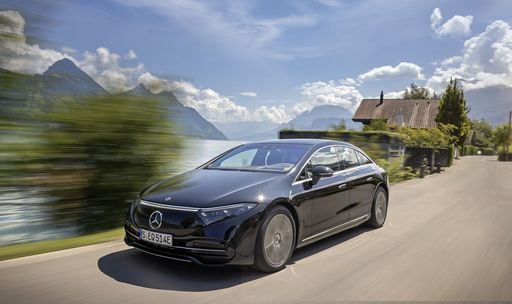
Mercedes EQS
BMW iX3
The BMW iX3 is an all-electric SUV that combines elegant design with sustainable technology, showcasing the brand's commitment to a greener future. Its refined interior offers a high level of comfort and advanced connectivity features, making it an attractive option for tech-savvy drivers. With its dynamic performance, the iX3 provides an engaging driving experience, proving that environmentally conscious solutions don't have to compromise on driving pleasure.
details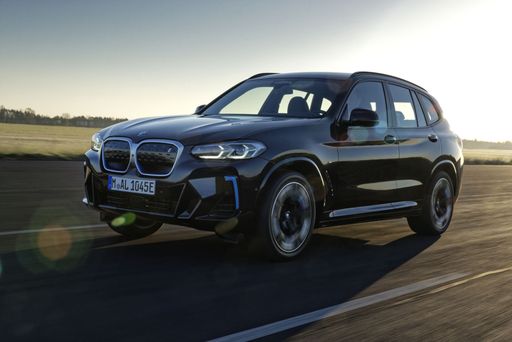 @ press.bmwgroup.com
@ press.bmwgroup.com
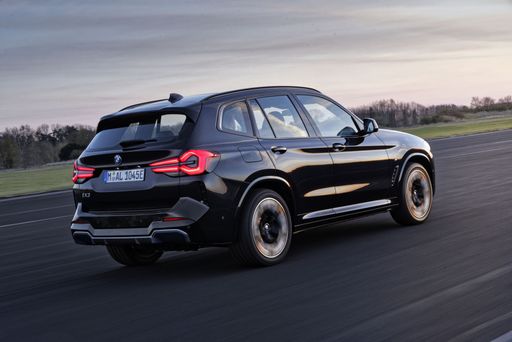 @ press.bmwgroup.com
@ press.bmwgroup.com
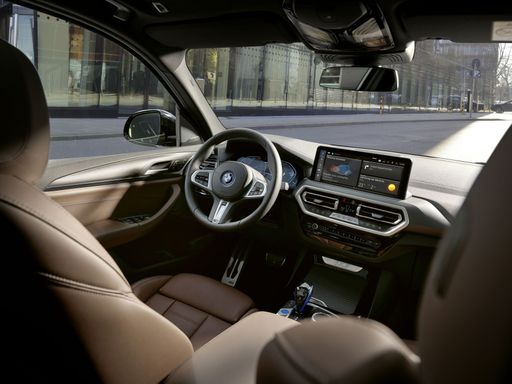 @ press.bmwgroup.com
@ press.bmwgroup.com
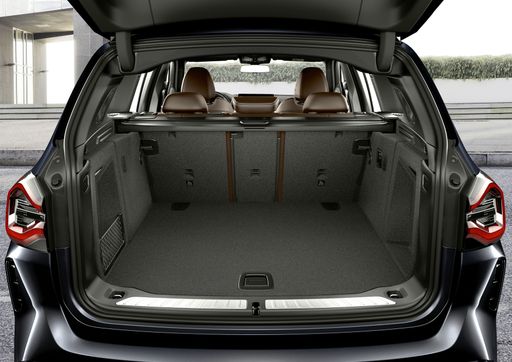 @ press.bmwgroup.com
@ press.bmwgroup.com
Mercedes EQS
The Mercedes-Benz EQS redefines luxury in the realm of electric vehicles, combining exceptional comfort with cutting-edge technology. Its sleek and aerodynamic design is a testament to both elegance and efficiency, setting new standards for the brand. Inside, the EQS offers a serene and spacious cabin equipped with the latest advancements, ensuring a refined driving experience.
details @ group-media.mercedes-benz.com
@ group-media.mercedes-benz.com
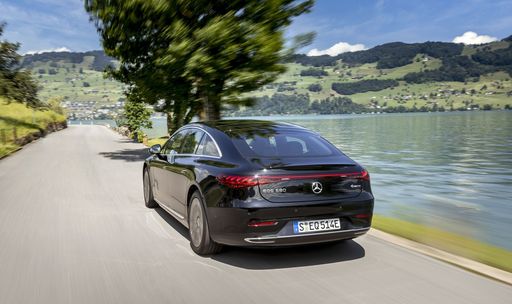 @ group-media.mercedes-benz.com
@ group-media.mercedes-benz.com
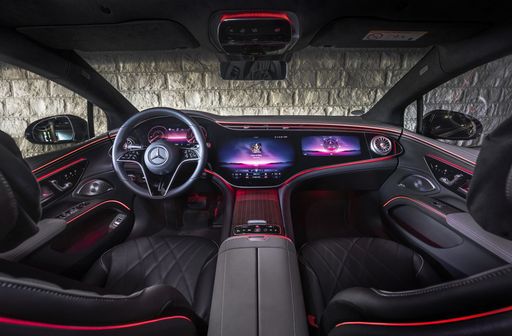 @ group-media.mercedes-benz.com
@ group-media.mercedes-benz.com
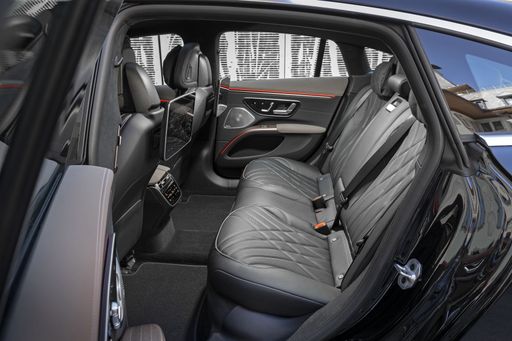 @ group-media.mercedes-benz.com
@ group-media.mercedes-benz.com
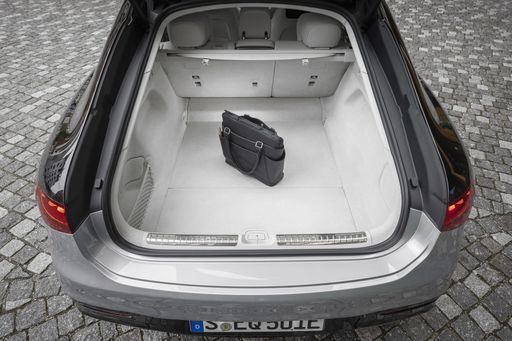 @ group-media.mercedes-benz.com
@ group-media.mercedes-benz.com

|

|
|
|
|
Costs and Consumption |
|
|---|---|
|
Price
59100 - 64600 £
|
Price
93900 - 123500 £
|
|
Consumption L/100km
-
|
Consumption L/100km
-
|
|
Consumption kWh/100km
15.10 kWh
|
Consumption kWh/100km
16.5 - 17.2 kWh
|
|
Electric Range
805 km
|
Electric Range
790 - 816 km
|
|
Battery Capacity
108.70 kWh
|
Battery Capacity
118 kWh
|
|
co2
0 g/km
|
co2
0 g/km
|
|
Fuel tank capacity
-
|
Fuel tank capacity
-
|
Dimensions and Body |
|
|---|---|
|
Body Type
SUV
|
Body Type
Hatchback
|
|
Seats
5
|
Seats
5
|
|
Doors
5
|
Doors
5
|
|
Curb weight
2360 kg
|
Curb weight
2545 - 2655 kg
|
|
Trunk capacity
520 L
|
Trunk capacity
610 L
|
|
Length
4782 mm
|
Length
5223 mm
|
|
Width
1895 mm
|
Width
1926 mm
|
|
Height
1635 mm
|
Height
1512 mm
|
|
Max trunk capacity
1750 L
|
Max trunk capacity
1770 L
|
|
Payload
465 kg
|
Payload
550 - 565 kg
|
Engine and Performance |
|
|---|---|
|
Engine Type
Electric
|
Engine Type
Electric
|
|
Transmission
Automatic
|
Transmission
Automatic
|
|
Transmission Detail
Reduction Gearbox
|
Transmission Detail
Reduction Gearbox
|
|
Drive Type
All-Wheel Drive
|
Drive Type
All-Wheel Drive, Rear-Wheel Drive
|
|
Power HP
469 HP
|
Power HP
360 - 544 HP
|
|
Acceleration 0-100km/h
4.90 s
|
Acceleration 0-100km/h
4.4 - 6.2 s
|
|
Max Speed
210 km/h
|
Max Speed
210 km/h
|
|
Torque
645 Nm
|
Torque
568 - 858 Nm
|
|
Number of Cylinders
-
|
Number of Cylinders
-
|
|
Power kW
345 kW
|
Power kW
265 - 400 kW
|
|
Engine capacity
-
|
Engine capacity
-
|
General |
|
|---|---|
|
Model Year
2026
|
Model Year
2024
|
|
CO2 Efficiency Class
A
|
CO2 Efficiency Class
A
|
|
Brand
BMW
|
Brand
Mercedes-Benz
|
What drive types are available for the BMW iX3?
The BMW iX3 is available as All-Wheel Drive.
The prices and data displayed are estimates based on German list prices and may vary by country. This information is not legally binding.
